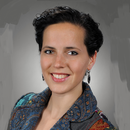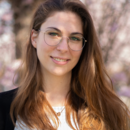The Hopp Children’s Cancer Center Heidelberg (KiTZ) is a joint institution of the German Cancer Research Center (DKFZ), Heidelberg University Hospital (UKHD) and the University of Heidelberg (Uni HD).
The novel method is being developed as part of the INFORM registry study at the Hopp Children's Cancer Center Heidelberg (KiTZ), the German Cancer Research Center (DKFZ) and Heidelberg University Hospital (UKHD). Children with cancer who have relapsed from all over Germany will be included in the study. In one arm of the study, the entire genome of the tumor will be decoded to look for molecular vulnerabilities that can be targeted with drugs.
In the second arm, in addition to genome sequencing, a small sample of the tumor is kept alive in the lab to test which drugs might work best in the young patients. Ina Oehme, who heads drug testing with patient-specific tumor samples at KiTZ and DKFZ, is developing a new method for this with her team: The scientists inject the patients' tumor cells into fish eggs, which grow into larvae with all organs within a few days. 20-30 cancer drugs that are already approved or in clinical trials can be tested on the tumor cells in the larvae in parallel and in combination to hopefully come up with one or more that will kill the young patient's tumor cells.
"The therapeutics are taken up and metabolized by the early larvae, so we can also better assess the toxic side effects on a young body that is still developing. We can observe not only tumor growth, but also the development of metastases. After three weeks, the treating physician receives the results and can take them into consideration for the therapy recommendation," Oehme explains the main advantages of drug testing on the fish model.
The project is funded by the Arnfried and Hannelore Meyer Foundation. "The Arnfried and Hannelore Meyer Foundation is committed to supporting people in particular need. By supporting research at the KiTZ, we are helping a very vulnerable group, children with cancer who have had a relapse, which in some cases gives them a new chance at treatment," says foundation chairman Hansjörg Elzer.
The foundation's approximately 48,000 euros will be used to purchase a high-throughput pipetting platform for the project. The foundation also supports the research fund of the KiTZ and the Prinses Máxima Centre in Utrecht, through which various projects for research into cancer in children are financed.
"Without private funding, such and other innovative research projects to develop new therapeutic approaches for children with cancer would not be possible," emphasizes KiTZ Director Olaf Witt, head of the Clinical Cooperation Unit Pediatric Oncology at DKFZ and senior physician at UKHD. "We sincerely thank the Arnfried and Hannelore Meyer Foundation for the trust they have placed in us and their support."
About the Arnfried and Hannelore Meyer Foundation
The Arnfried and Hannelore Meyer Foundation was established in 2005 with the aim of helping young people to implement and further develop their ideas and inventions and to become active entrepreneurs. A special concern of the founding couple is to help socially disadvantaged people. The purpose of the Arnfried and Hannelore Meyer Foundation is to promote science and research, youth welfare and assistance for the elderly, as well as public health and welfare. The foundation pursues exclusively charitable and benevolent purposes and focuses primarily, but not exclusively, on the Heilbronn district. Arnfried Meyer had built up his company there in the 1950s.




